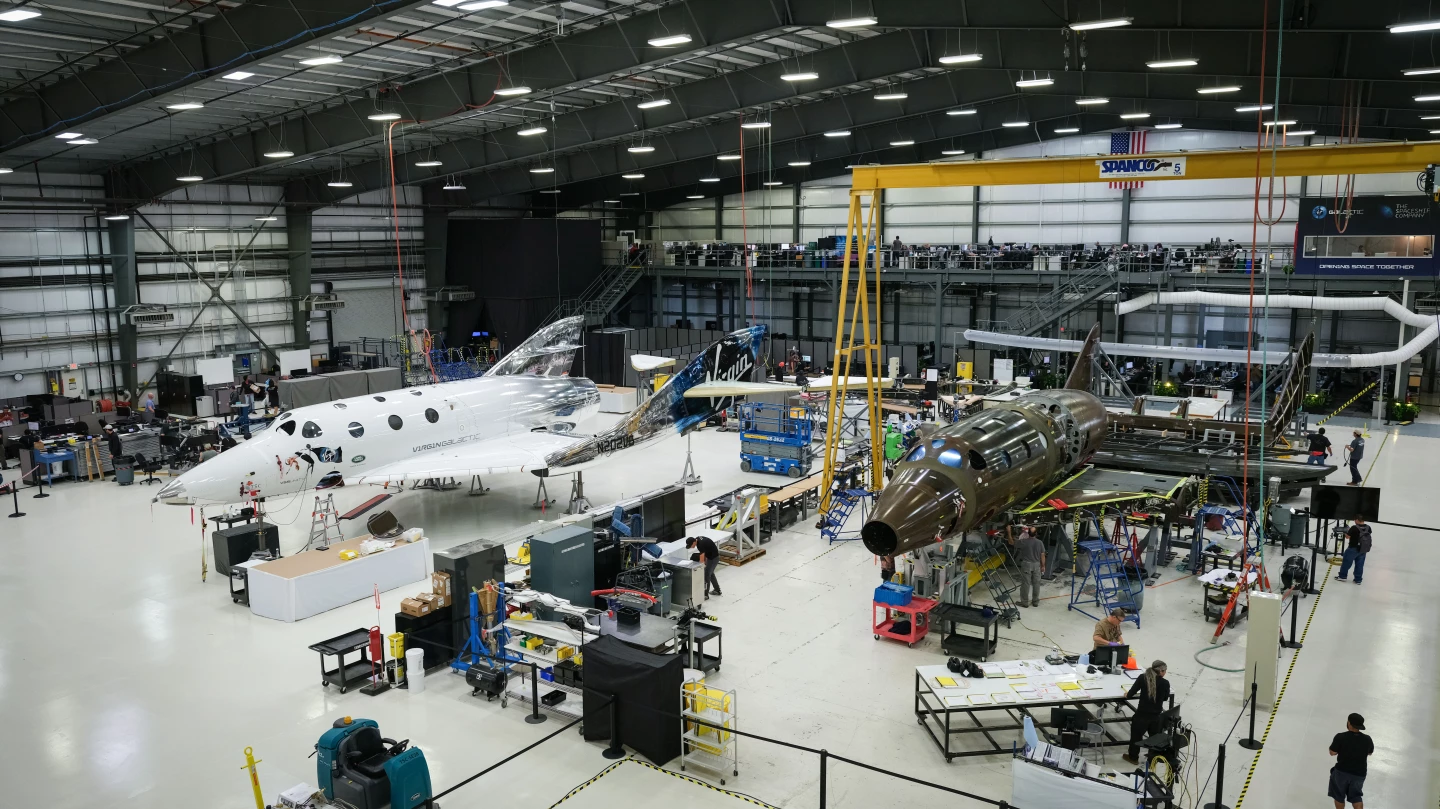Virgin Galactic's second commercial spacecraft has passed an important milestone. Under construction by Virgin Galactic's The Spaceship Company subsidiary, the fuselage, cabin, and wing assembly of the next SpaceShipTwo have been joined together, and the two tail booms have been mated to the rear feather flap assembly.
Virgin Galactic's first spacecraft, VSS Unity, has yet to carry its first paying passenger, but the company is already expanding its fleet with the construction of its second vehicle (or third, if you count the prototype destroyed during a test flight).
To achieve this, The Spaceship Company is using a modular design that allows the cabin, fuselage, wing and feather assemblies to be built in parallel. In addition, the engineers adopted Design For Manufacturability and Assembly (DFMA) techniques, which is designed to speed up production while keeping down costs by simplifying the complexity of the craft's design, as well as reducing the number of components and assembly steps.
Virgin Galactic says the mating of the fuselage, cabin, and the wing was monitored by laser trackers to ensure a proper fit. Meanwhile, the feather assembly, which allows the craft to descend safely from the edge of space, had its inboard skins bonded to the boom internal structures and then rotated vertical and mounted on the feather flap assembly.

As well as the major parts of the craft being assembled, most of the wing systems have been integrated and the cabin crew station has been installed.
Currently, VSS Unity is completing ground and flight tests in Mojave, California and will be moved to the Virgin Galactic's Spaceport America in New Mexico, while a third SpaceShipTwo is slated for construction.
"It is exciting to imagine these two vehicles operating shoulder-to-shoulder from Spaceport America in New Mexico," said George Whitesides, CEO of Virgin Galactic and The Spaceship Company. "We have a strong block design which we believe we can replicate to build the remainder of the fleet, continuing our march toward commercial service."
Source: Virgin Galactic







